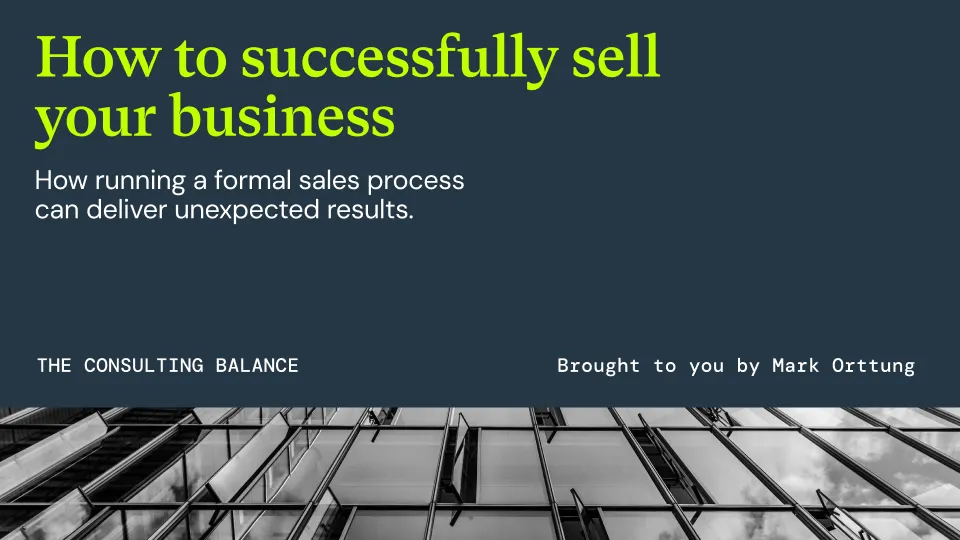When buying commercial property is better than renting
.webp)
Advice and insights into finding the perfect workspace for your growing team.
In this article Mark shares a story from the end of 2019 when after months of looking for the perfect rental property, his board told him to buy it. Read on to learn how what might seem like an impossible dream, could be closer to reality than you think.
Why rent if you can buy?
In December 2019 we met with the board for what we thought would be a no-brainer approval to proceed with an office lease we’d taken all year to find. You can imagine our surprise when the board told us to forget the lease and buy the building instead.
If you’ve read any of my recent articles you’ll know that 2019 was a big year of growth for us. By December we had around 700 people in the firm, with 500 of them being in our Ann Arbor delivery center. At a 40% increase in staff each year, we knew we needed to quickly find space to accommodate our growing teams. We’d already cobbled together our existing office from multiple buildings, with parking a continual nightmare. We really needed to find a large enough space for us all to be under one roof. A big parking lot was a must too.
We spent much of 2019 searching for the perfect home. We considered a number of rental properties. We even considered buying a piece of land and building ourselves a campus. I loved this idea but it would’ve been a time-consuming and lengthy process and we were fully consumed with building the business. We really needed a new space in the first half of 2020, so it was unfortunately a non-starter.
Late in the year our real estate broker presented us with a ten-year lease on a building that was also for sale. At 110k square feet, it was a great fit. It was really beautiful with tall ceilings, lots of giant windows and great natural light. We figured we could seat 700 – 800 people with room for 700+ vehicles. Our broker was already putting together a group to buy the building. If we were to lease it, our total commitment would be $10m over the ten-year period. The price seemed high, but it fit into our budget, assuming we kept growing at a good clip.
To make the deal happen our potential new landlord would need to close the purchase and do some updates we needed. We wanted some walls removed and space generally opened up, so the timing was pretty tight to get a lease done. When the board told us to switch to buying it, the timeline seemed impossible, but we dove in to figure it out.
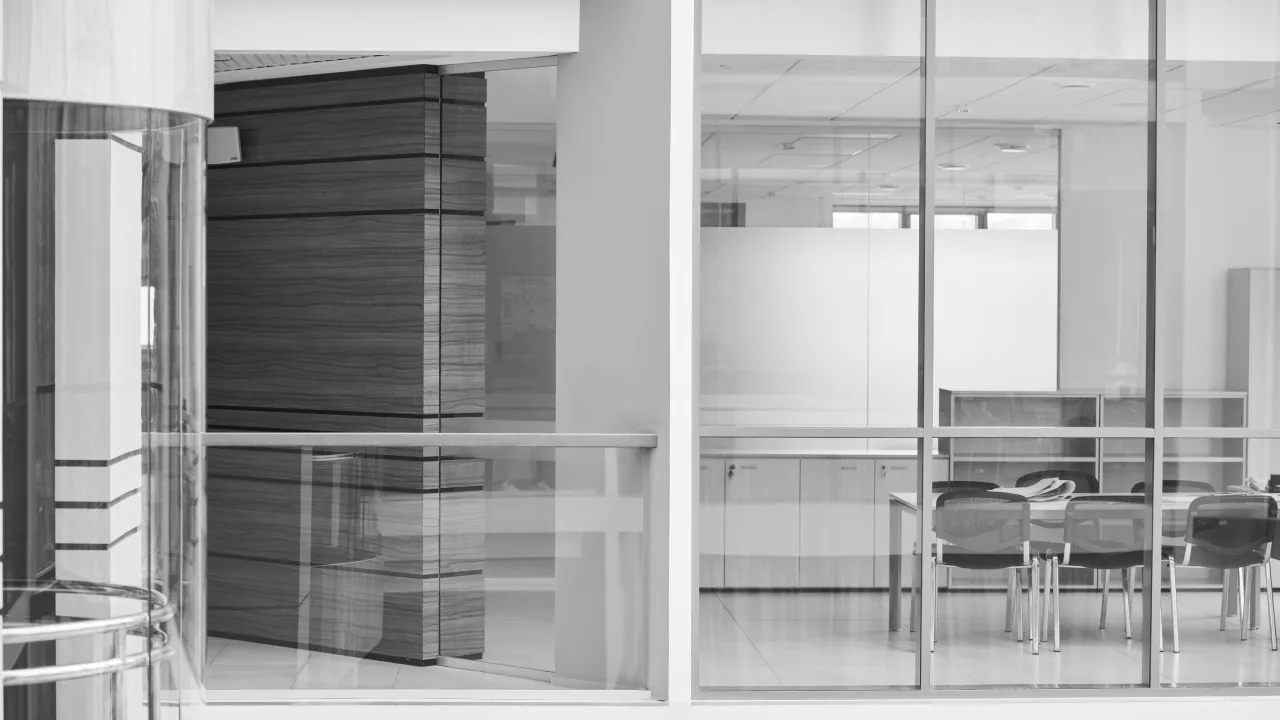
Going big can sometimes pay off
One of our board members had told me that if your company is growing quickly, you’ll never get the real estate part right. With multi-year leases, you’ll soon be too small for a space. You’ll enjoy a short period of a few months where it is the right size, and then you’ll have too many people to accommodate. He basically said that you shouldn’t get stressed out about this because you just can’t get it right.
When we told the broker what we wanted to do, it took some quick changes on his part. He was working with a partner on the existing deal which included ongoing management of the building. The prospective purchaser was a group of investors. They were interested in the building if it came with us as a long-term tenant. If we were to pull out of that deal then closing with them would be far less certain. Also, as a single entity we were a more attractive and easier option to the brokers. So we were able to structure things so that we replaced the investors (for a buyout fee) and retained the partners who were managing the deal and the building after we were done.
It turned out that we were able to buy the building for less than the total commitment of the lease. It meant that we were on the hook for any changes to the building as well as any maintenance that would be required, but from a business (financials) point of view, the switch was still a huge success.
The way we’d have accounted for the lease was as an operating expense. So for each of the ten years of the lease, we’d have about $1m in expenses for renting the space. Once we had arranged a loan to buy the building, we could amortize its cost over 25 years. This meant that we’d only have an expense of around $400k per year, so our operating profit immediately grew by $600k per year. This increased our profit by just under 1% of revenue.
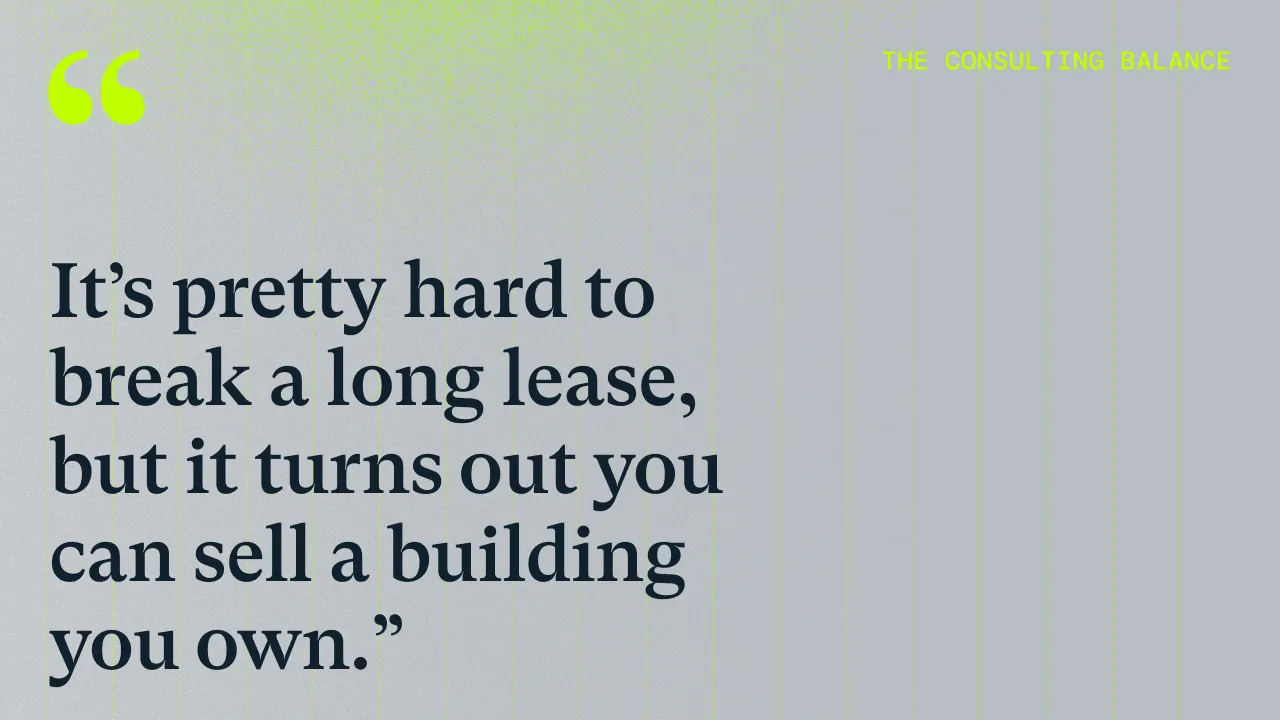
Abandoning our new building for remote working
The timing was, of course, about as bad as it could get with what happened in 2020. We had just started to make the enhancements we needed to the building when we had to change to remote working. As things kept changing throughout 2020, we didn’t know what would come next, so we stopped the buildout after the first phase.
As we kept working from home things changed rapidly for our clients, so (after an initial dip when everything froze for a quarter or two) our business grew rapidly. By mid 2020 we needed to hire around 400 skilled people quickly. While we initially tried to stick to hiring them all within commuting distance from our new center, we quickly had to relax that requirement to get the right people. We let people join with a fully remote model and wound up hiring people across more than 40 states.
When lockdown finally ended, we had 150 - 200 fewer people in Michigan as a result of natural attrition, but over 400 more people across the US. Even by the end of 2021 when people started coming back into our office, most people preferred to work from home. Many of them had teammates working remotely so even if they did come in they’d probably be talking to their co-workers on video anyway. This meant we never really got to take full advantage of our beautiful new space. I find this tragic, but it would’ve happened regardless of whether we had bought or leased the space. In a weird way, we had more flexibility by owning the space than we did if we had leased it. It’s pretty hard to break a long lease, but it turns out you can sell a building you own.
Some advice on purchasing commercial property
- If your company is growing fast, don’t stress about getting an exact fit on real estate. You won’t get it right other than for a few magical months in the middle of your lease.
- Focus on your core business. I wouldn’t necessarily recommend that anyone running a services firm should buy office space, but if you invest the time and energy to do so, find a partner who will deal with most of the work for you. In our case, we had the broker and his partner who were managing the purchase of the building and the ongoing maintenance. This allowed us to spend about the same time on the space as we would’ve with a landlord, so we could keep our focus on the main business.
- Sometimes an office space or local real estate market requires you to sign up for a long, expensive lease. If this happens to you, consider what the economics look like with a purchase. You may find that the cash required isn’t that different. The way the expenses hit your P&L statement could be significantly better. You also get flexibility on what to do with the space as things change for your business. There are costs to selling, but you get out of the random timing of a lease. And you might acquire an appreciating asset in your portfolio too.
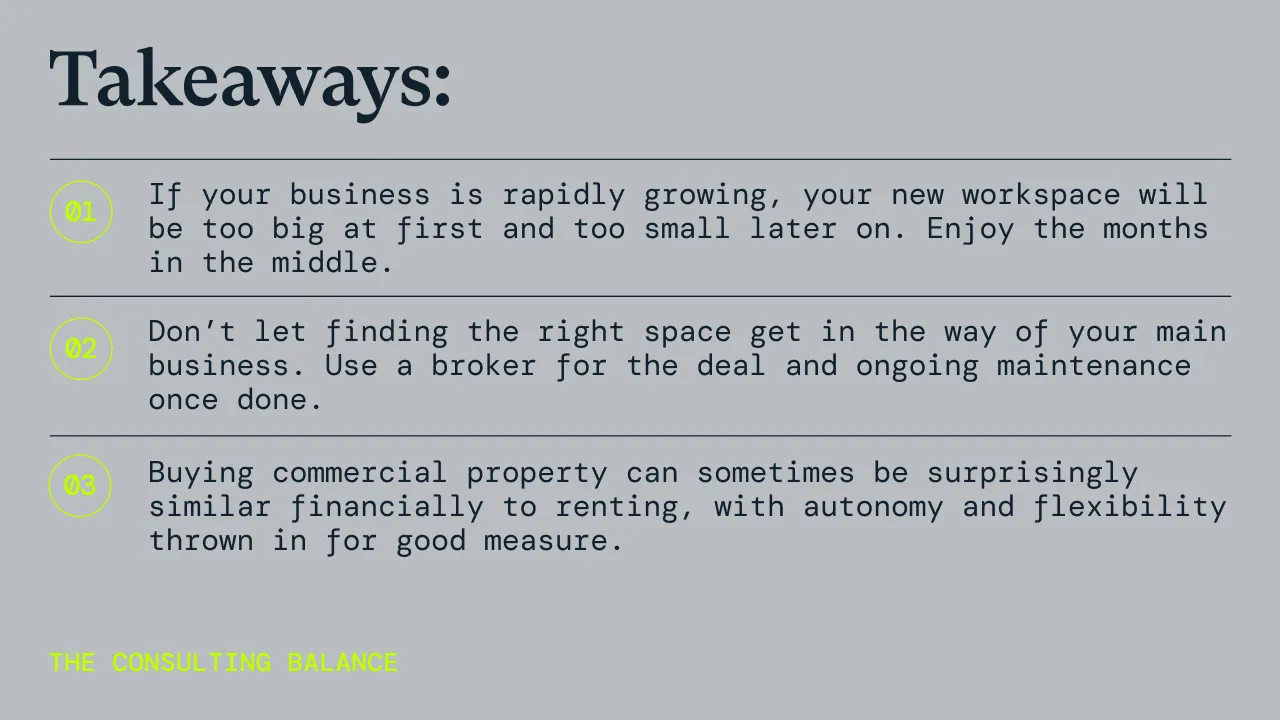
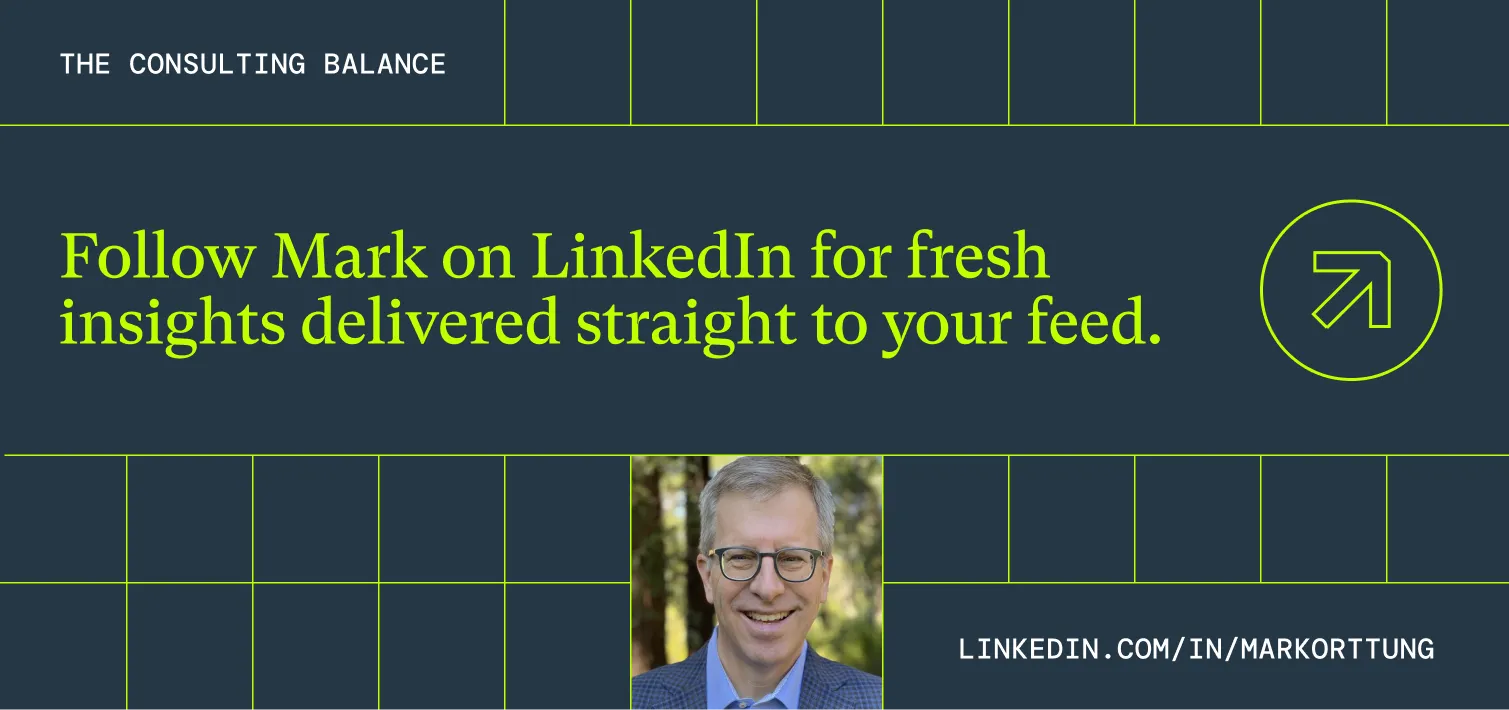
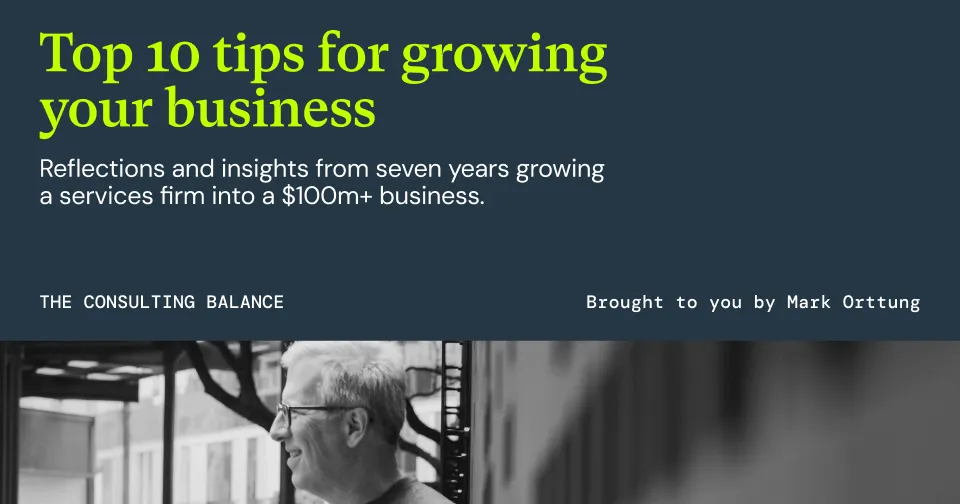
.webp)
